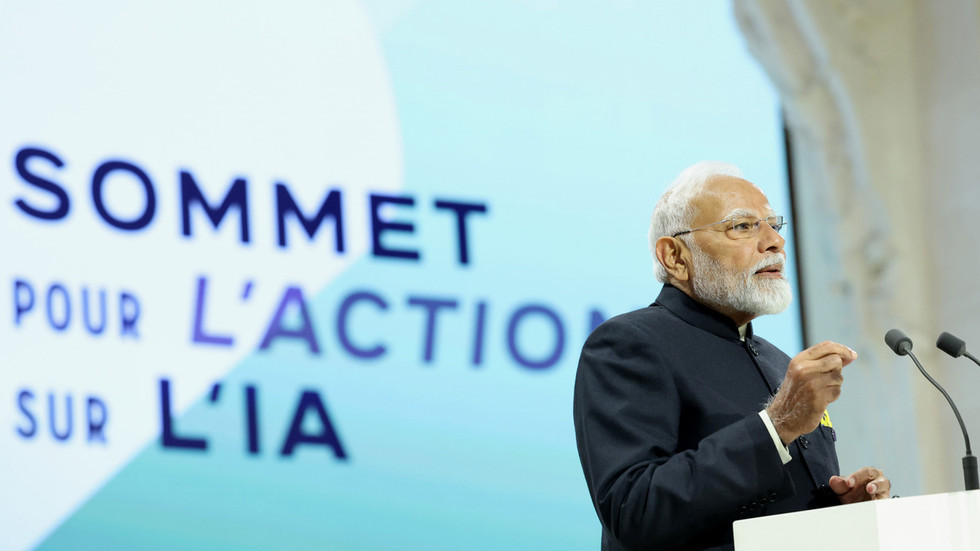Modi Advocates for Bias-Free AI: The Need for Ethical Innovation
In a rapidly evolving technological landscape, artificial intelligence (AI) has emerged as a cornerstone of innovation across various sectors. Recognizing its profound impact on society, Indian Prime Minister Narendra Modi recently delivered a compelling address advocating for the development of bias-free AI. His emphasis on ethical innovation resonates deeply as it highlights the urgent need for stakeholders to prioritize fairness and inclusivity in AI technologies. This call to action is not just timely; it is essential for shaping a future where AI serves humanity equitably.
The Implications of Bias in AI
The increasing integration of AI into daily life—from social media algorithms to autonomous vehicles—presents both unprecedented opportunities and significant challenges. Bias in AI systems can lead to discriminatory practices, reinforcing existing societal inequalities. For instance, biased data can result in algorithms that unfairly target specific demographics, leading to skewed outcomes in critical areas such as hiring, law enforcement, and healthcare.
According to a study by the MIT Media Lab, facial recognition systems are significantly less accurate for individuals with darker skin tones, highlighting a glaring bias that can have serious implications on privacy and security. The consequences of such biases are profound, affecting individuals’ lives and perpetuating systemic discrimination.
Modi’s Vision for Ethical AI
Prime Minister Modi’s advocacy for bias-free AI is grounded in the belief that technology should empower all sections of society. He urges a collaborative approach among governments, industries, and academia to create frameworks that promote ethical AI practices. His vision is clear: AI should not only be innovative but also responsible and inclusive.
In his address, Modi outlined several key areas where stakeholders can focus their efforts:
- Developing Fair Algorithms: Ensuring that AI algorithms are trained on diverse datasets that accurately represent all demographics.
- Establishing Regulatory Frameworks: Governments should create policies that guide the ethical development and deployment of AI technologies.
- Encouraging Transparency: Organizations must prioritize transparency in AI systems to build trust and accountability.
- Promoting Education and Awareness: Enhancing public understanding of AI and its implications can empower individuals to advocate for their rights.
The Role of Stakeholders in Promoting Bias-Free AI
Achieving a bias-free AI landscape is a collective responsibility that requires active participation from various stakeholders:
- Governments: Should lead by example, implementing regulations that demand ethical AI practices and penalizing non-compliance.
- Tech Companies: Must invest in research to identify biases in their algorithms and commit to rectifying them through rigorous testing and validation.
- Academics and Researchers: Have a critical role in developing methodologies to assess and mitigate bias in AI systems.
- The Public: Individuals can advocate for their rights by demanding transparency and accountability from organizations utilizing AI.
Real-World Examples of Ethical AI Practices
Several organizations are already leading the way in ethical AI practices, demonstrating that it is possible to innovate responsibly:
- IBM: The company has made strides in promoting fairness in its AI systems, with tools designed to detect and mitigate bias during algorithm training.
- Google: Google’s AI Principles emphasize the need for AI that is socially beneficial and avoids creating or reinforcing unfair bias.
- Microsoft: The tech giant has established an AI Ethics Committee to oversee AI projects and ensure adherence to ethical standards.
The Global Context of Ethical AI
Modi’s call for bias-free AI is not an isolated plea; it echoes a growing global movement towards ethical AI development. International organizations and governments are beginning to recognize the importance of addressing bias and promoting fairness in AI technologies. The European Union, for instance, has proposed regulations aimed at ensuring AI systems are fair and transparent.
Moreover, various global initiatives, such as the Partnership on AI—a collaboration among leading tech companies—focus on studying and mitigating the societal impacts of AI. These efforts highlight a collective understanding that the future of AI must be constructed on foundations of trust, fairness, and inclusivity.
Challenges Ahead
Despite the positive momentum, several challenges remain in the quest for bias-free AI:
- Data Quality: Poor-quality data can lead to biased outcomes, making it essential to establish standards for data collection and usage.
- Resistance to Change: Organizations may resist implementing ethical practices due to perceived costs or complexities.
- Rapid Technological Advancements: The fast-paced nature of AI development can outstrip regulatory frameworks, leading to ethical oversights.
Conclusion: A Call to Action for Ethical Innovation
Prime Minister Modi’s advocacy for bias-free AI serves as a crucial reminder of the responsibility that comes with technological advancement. As AI continues to permeate every facet of our lives, prioritizing ethical innovation is no longer optional; it is imperative. Stakeholders must come together to ensure that AI technologies are developed and deployed in ways that are fair, transparent, and inclusive.
In a world increasingly shaped by artificial intelligence, let us heed the call for bias-free AI and work collectively towards a future where technology uplifts every individual, irrespective of their background. By embracing this challenge, we can foster an environment where innovation thrives alongside ethical considerations, ultimately paving the way for a more equitable society.
See more Future Tech Daily

